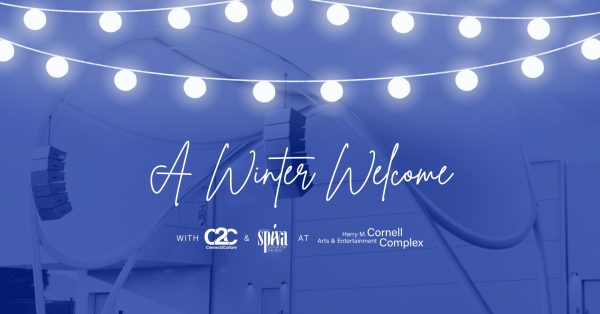Barriers to reef survival: Willand takes audience through basics of coral life
An audience of about forty students and faculty gathered at 10 a.m. on Wednesday, September 4, 2019 in Corley Auditorium, to gain a greater understanding of Australia’s Great Barrier Reef, engaging with a topic which has gained increasing public awareness in recent years. Beginning with an explanation of what corals are, Dr. Jason Willand, assistant professor of biology and environmental health at Missouri Southern, provided an illuminating introduction into the issues the Great Barrier Reef, and reefs in general, face.
“I always like to think of reefs as a tropical rainforest which occurs in the ocean,” said Willand. He painted a picture of the biodiversity of reefs. He explained that the Great Barrier Reef could fit the United Kingdom and the Netherlands within its footprint.
There are several types of reefs within the Great Barrier Reef, according to Willand. Fringing reefs, platform reefs, and ribbon reefs occur in different conditions and provide different opportunities to the types of coral which form the reefs.
“Coral is a generic name for over 2,500 species of tiny invertebrates,” said Willand.
The coral form symbiotic relationships with algae, which provide the coral with nutrients, said Willand. When water temperatures are too warm, usually due to a hot, calm day, the algae produce too much oxygen and burn the tissue of the coral. Willand said this causes the coral to release the algae which is a process called “bleaching.”
“A bleached coral is not dead, yet,” Willand said.
Frequent bleaching events do cause the death of coral, according to Willand, and they have been happening on almost a yearly basis for the last thirty years.
Shipping, human and storm caused erosion, and fishing were also significant threats that Willand pointed to in his presentation. He said that the future of coral reefs is largely speculative, but there are models. “I don’t like models,” he added.
A video played during the presentation referenced American Samoa and drew the applause of three Missouri Southern students in the front row. Solomona Fetaua, criminal justice major, Lepo Fualaau, business major, and Tasi Ifopo, industrial engineering technology major, are freshman at Southern and are from American Samoa. They felt the topic of the presentation was important and said they had studied the subject in American Samoa.
Your donation will support the student journalists of Missouri Southern State University. Your contribution will allow us to purchase equipment and cover our annual website hosting costs.



















